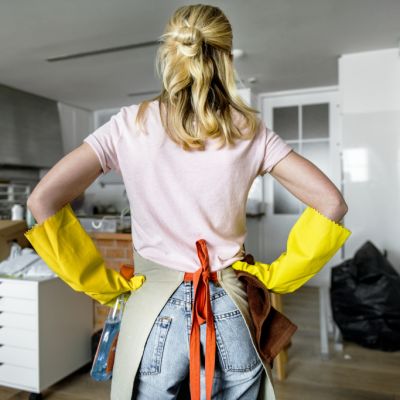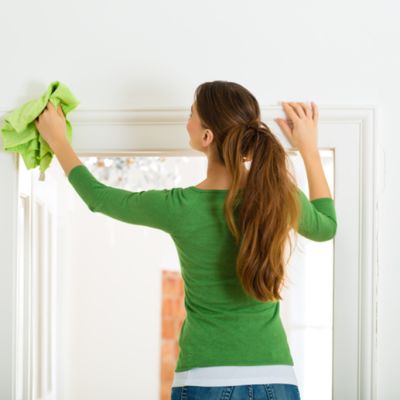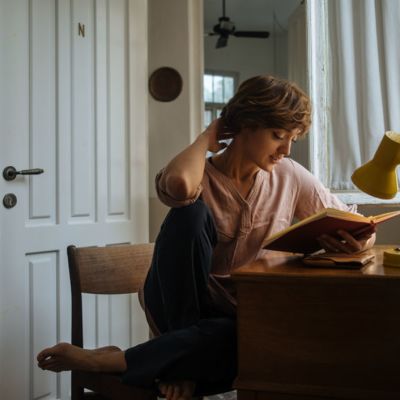The psychology of why we love home organisation shows
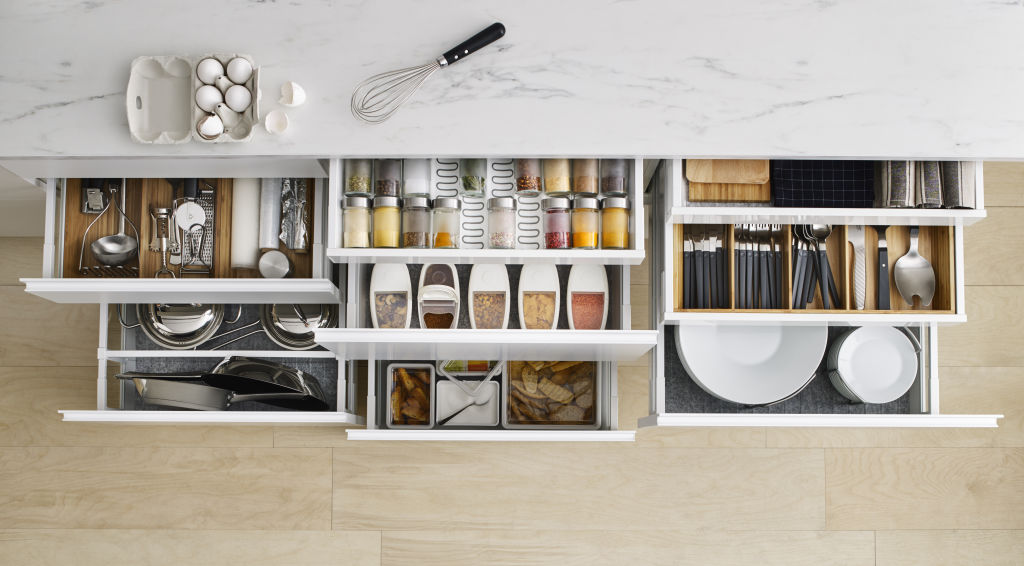
Unless you’ve been hiding under your bed, you are probably familiar with the Netflix series Get Organised with the Home Edit, where two women visit celebrities to help them get their gigantic storage spaces in sparkling, colour-co-ordinated order.
Or perhaps you’ve been following self-confessed neat freak Sophie Hinch on Instagram.
Hinch, who says she began house cleaning as a way to medicate her anxiety, has amassed 3.8 million followers through hacks and housekeeping tips.
The married mother is so successful, she has managed to invent a new name for cleaning. She calls it “hinching” and is one of dozens of housekeeping superstars on Instagram who have found fame via scrubbing their floors.
If you leap across to YouTube, you’ll find more of the same tricks and tips on the easiest way to clean your toilet or your lounge or your stovetop. Meanwhile, on TikTok, the #cleanyourroom challenge is still in full swing, inciting otherwise ordinary teenagers to pick clothes up off the floor.
What is going on? Is this obsession with uber-organisation and cleanliness a trickle down from Marie Kondo? Are we now addicted to sparks of joy?
Although, it must be said that these clips and shows are as much about cleanliness as they are transformation. Montages and fast motion mean viewers get to gloss over the hard work of sorting and scrubbing to quickly arrive at a shiny, triumphant reveal. Is that the reason we find all of these tedious household chores so enthralling?
“It gets very boring living in stage four, so we have to manufacture activities sometimes!” says Debra Campbell, a psychologist who lives in Melbourne.
“Those cleaning and organising tasks fulfil a few yearnings – crossing stuff of the to-do list that we might not have time for if we weren’t stuck inside and adding a greater sense of order and control where we can,” she says.
In other words, these displays of neat and orderly spaces may provide a short-term respite from the collective anxiety we’re currently experiencing.
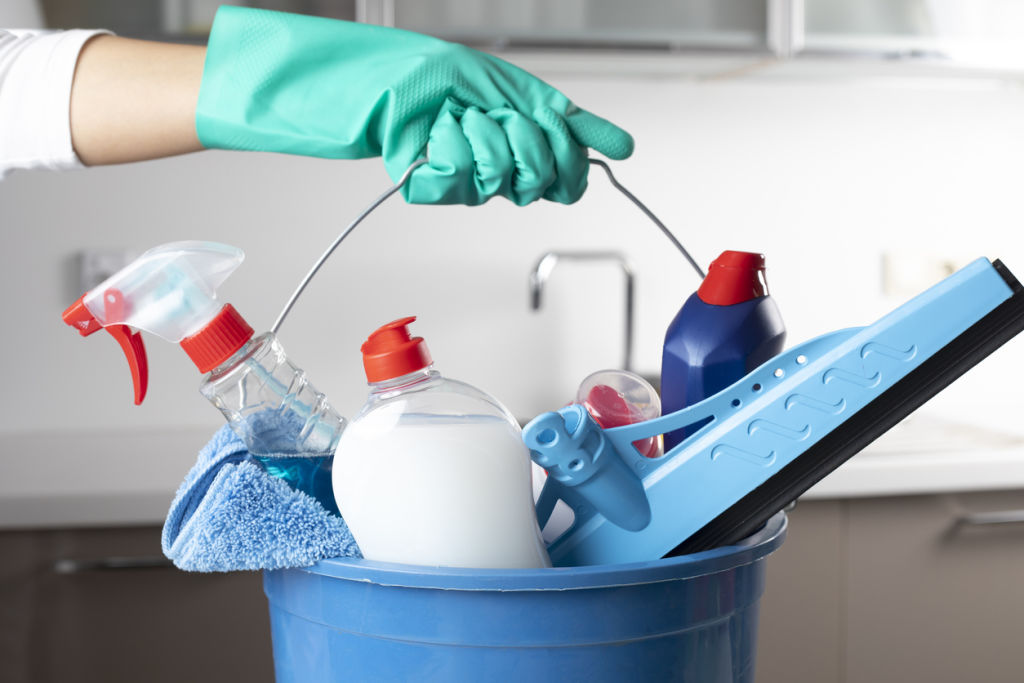
“When the world feels like it’s more chaotic than possibly ever before in our lifetimes, it’s understandable that we would want to make our own space more user-friendly and more aesthetically enjoyable.”
That’s undoubtedly true for Victorians, who have had to endure a lockdown since June. But it doesn’t account for the rest of the country or the fact that bearing witness to cleanliness, (as opposed to cleaning up yourself) was an established sport well before the coronavirus pandemic hit.
Campbell believes that tidying up shows, like any other “make-over” series on television, can be emotionally satisfying, though she stops short of calling them soothing.
“I don’t think watching them is at all soothing if you haven’t got your own space in order,” she says. “What’s more likely is that the show will drive you to self-doubt through comparison or more positively to motivate you into taking action in your own space.”
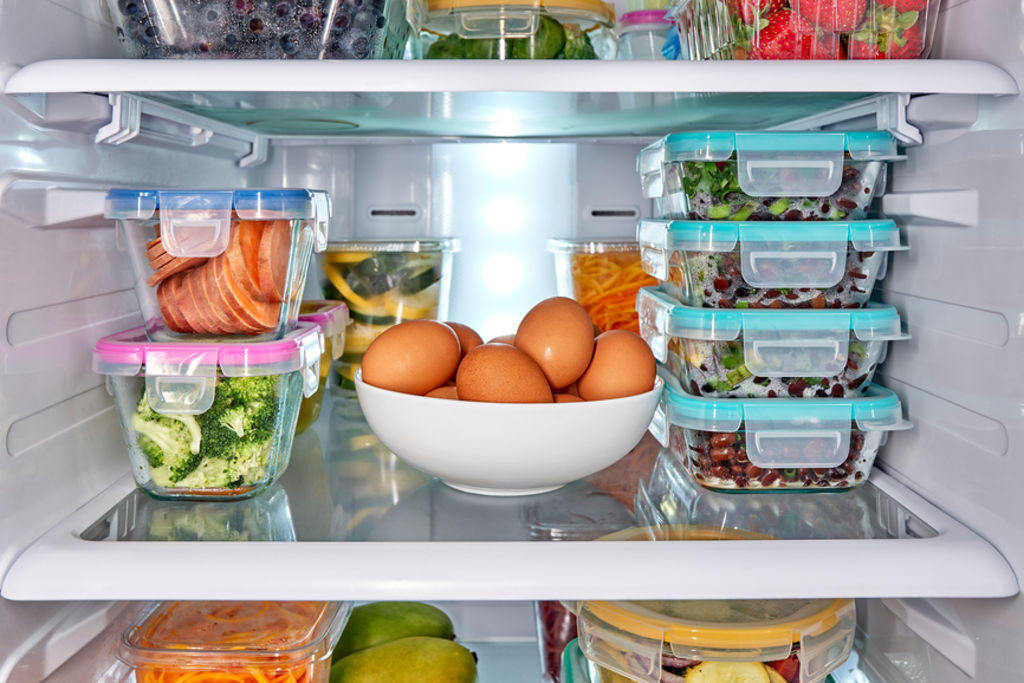
The cultural critic and author of the book The Longing For Less: Living With Minimalism, Kyle Chayka calls such sweeping acts of home organising “an ostentatious ritual of consumerist self-sacrifice” with roots in disposable, capitalist culture.
Indeed, some have argued, particularly in the wake of Marie Kondo’s homewares line, that decluttering is simply an excuse to clean out so you can make way for more stuff.
But it’s possible the cleaning up trend has a positive impact beyond aspirational shelf-lust. Acts of cleaning, no matter how small, can function as a form of behavioural activation, a psychological technique sometimes used to help those suffering from depression.
As Campbell says, “I often guide patients to fill their day with as many activities of two kinds as they are able to fit in: Things that make you feel competent [little wins, even two-minute ones] and things that give a little pleasure or enjoyment, however mild.”
“The little moments all add up to create a better day,” says Campbell, which may in turn, enhance self-esteem. “Cleaning and organising can offer some satisfaction and a sense of achievement. It’s not a bad option.”
We recommend
States
Capital Cities
Capital Cities - Rentals
Popular Areas
Allhomes
More
